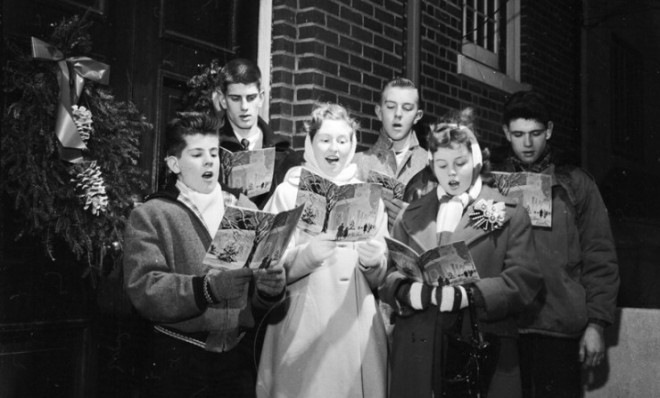5 things you didn't know about 'The Twelve Days of Christmas'
From the total number of gifts in the song to the real story behind those five golden rings, here are some little-known facts about the classic Christmas carol


A free daily email with the biggest news stories of the day – and the best features from TheWeek.com
You are now subscribed
Your newsletter sign-up was successful
With only 12 days left 'til Christmas, we're in the heart of caroling season — and few songs would seem more appropriate than "The Twelve Days of Christmas." (Listen to the carol below.) But no matter how many times you've sung it — or found ways to avoid singing it — how well do you really know the song? Here, 5 revelations about the ubiquitous, vaguely irritating "Twelve Days of Christmas":
1. The "Twelve Days" don't end on Christmas Day — they begin on it. The Holy Trinity Catholic Church explains that the "12 days of Christmas" don't begin on December 13 and end on Christmas Day; they begin on Christmas Day and end on January 5, marking the time of "merry-making" until the Epiphany. The singer's true love is generously extending his or her gift-giving for nearly two weeks after Christmas Day. (We're celebrating now anyway.)
2. It's "four colly birds," not "four calling birds." Mike O'Connor of the Bird Watcher's General Store explains that "colly" is an obsolete synonym for "grimy or sooty, like a chimney sweep" — and the song's "colly birds" are actually blackbirds. It remains unclear why anyone's true love would actually give them four blackbirds, but the song's idea of a charming gift does skew towards the ornithological (See: Swans, geese, hens).
The Week
Escape your echo chamber. Get the facts behind the news, plus analysis from multiple perspectives.

Sign up for The Week's Free Newsletters
From our morning news briefing to a weekly Good News Newsletter, get the best of The Week delivered directly to your inbox.
From our morning news briefing to a weekly Good News Newsletter, get the best of The Week delivered directly to your inbox.
3. "Five golden rings" may actually refer to five pheasants. Mike Bergin of 10,000 Birds explains that the song's seemingly bizarre switch from four birds, to five pieces of jewelry, and back to six birds actually makes perfect sense: The "five golden rings" are likely a reference to ring-necked pheasants.
4. The total number of gifts given in "The Twelve Days of Christmas" is 364. Multiply each gift by the number of times it recurs in a full round of the song and you'll see that the gifts' recipient would have to rent a storage unit (and possibly a lake) to contain the bounty, including 42 swans a-swimming, 22 pipers piping, and 40 maids a-milking.
5. In 2012, your true love would have to spend $107,300 to buy all 364 presents. PNC Wealth Management has calculated the cost of the gifts every year since 1984, in an annual report called the "Christmas Price Index." (In 1984, the same gift assortment would have cost $61,300.) Those determinedly mobile swans are the most expensive item, at $1,000 each.

A free daily email with the biggest news stories of the day – and the best features from TheWeek.com
Scott Meslow is the entertainment editor for TheWeek.com. He has written about film and television at publications including The Atlantic, POLITICO Magazine, and Vulture.
